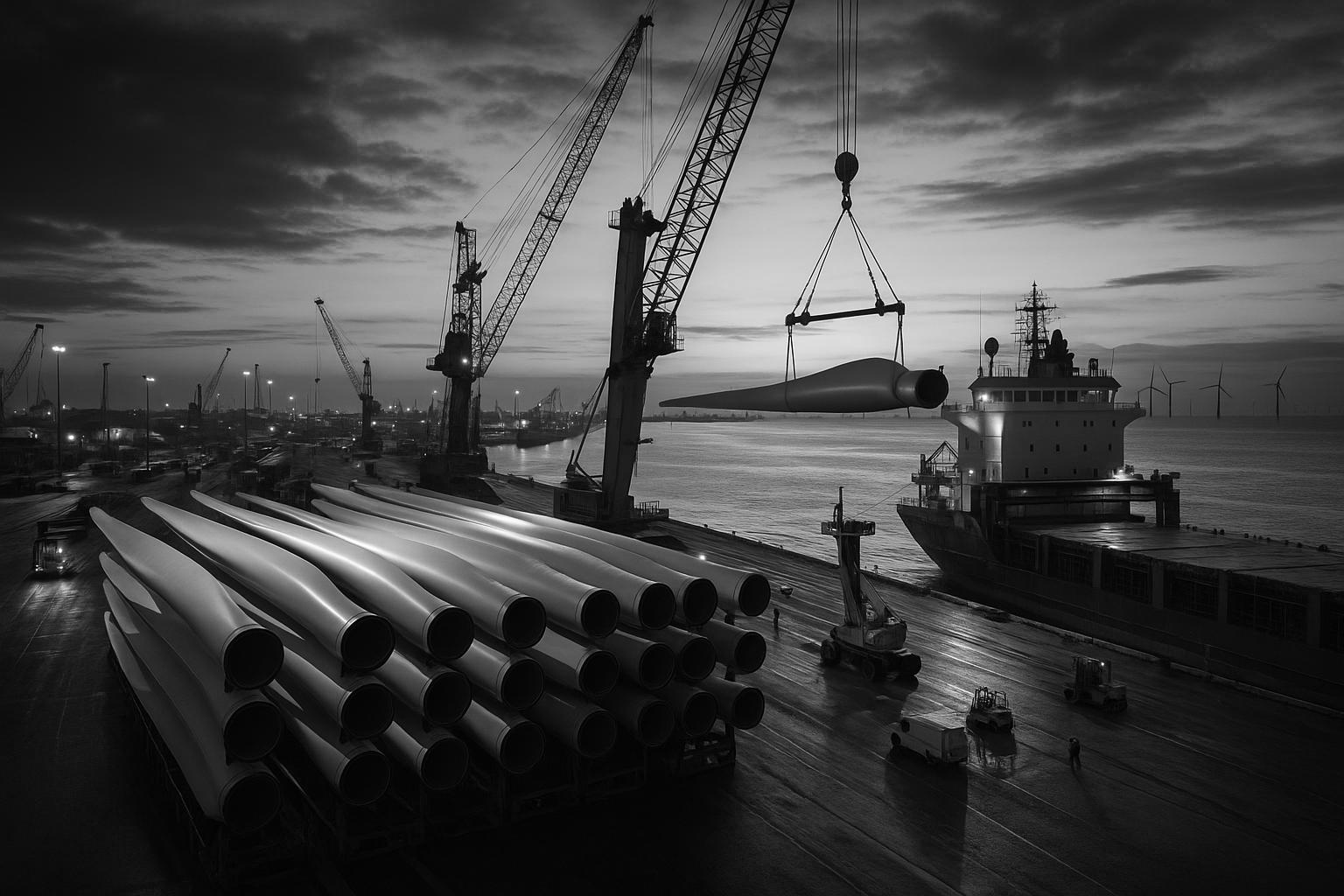The Crown Estate has unveiled a significant initiative to accelerate the UK’s offshore wind sector by committing up to £400 million in capital investments targeted at expanding and enhancing the supply chain infrastructure. This move, announced on the opening day of the Global Offshore Wind conference in London, focuses on developing essential onshore facilities, such as ports, manufacturing hubs, and research centres, to support the rapid deployment of offshore wind power across the UK’s coastline.
Recognising that limited supply chain capacity is a major barrier to scaling offshore wind, this investment is designed to unlock economic, social, and environmental benefits by enabling smoother project delivery and fostering local growth opportunities. The investment programme comprises two streams: a £350 million Supply Chain Investment Programme dedicated to financing new port and supply chain infrastructure, and a £50 million Supply Chain Accelerator that targets early-stage project development. The Accelerator recently entered its second funding round, set to distribute up to £15 million, expanding its scope to include UK ports and related infrastructure, with applications closing on 27 June 2025.
This initiative leverages new powers granted by the Crown Estate Act 2025, passed in March, enabling The Crown Estate to directly invest capital in renewable infrastructure projects. It aligns closely with broader government ambitions to decarbonise the electricity sector by 2030 by tripling offshore wind capacity to potentially power nearly 20 million homes. Coordinated efforts include partnerships with public and private sector entities such as Great British Energy—a government-backed energy company recently established to collaborate with The Crown Estate—and the National Wealth Fund, which has already invested £227 million in related infrastructure.
Stakeholders across the industry have welcomed the announcement. Ben Brinded, Head of Investment at The Crown Estate, emphasised the importance of collaboration, saying that investment in enabling infrastructure is vital to accelerate offshore wind deployment, reduce investment risks, and generate local economic opportunities. Juergen Maier, Chair of Great British Energy, underlined the UK's leadership in offshore wind and the necessity of partnerships to fully realise job creation, growth, and innovation benefits. Tim Pick, Chair of the Offshore Wind Growth Partnership, highlighted the synergy of The Crown Estate’s programmes with the Industrial Growth Plan’s goals—boosting the domestic supply chain and technology leadership. David Gwynne of the National Wealth Fund also expressed commitment to boosting financing for offshore wind infrastructure as part of the government’s clean energy and growth missions.
The broader context of the UK’s offshore wind ambitions features the launch of Great British Energy, a state-backed company receiving £8.3 billion in funding, which will co-invest and carry out early development on projects including floating offshore wind and technologies such as carbon capture. This partnership aims to attract up to £60 billion in private investment by creating a robust pipeline of renewable energy infrastructure. The Crown Estate itself manages vast seabed holdings critical for these developments and recently approved expansions for seven offshore wind farms, further supporting the clean energy transition.
However, challenges persist in the sector. Major developers like Ørsted have recently suspended large projects such as Hornsea 4 due to rising costs, supply chain disruptions, and operational risks, reflecting broader industry concerns about market conditions and government support. The UK government has reassured stakeholders of its commitment to overcoming these hurdles to meet the 2030 net-zero electricity target.
Aside from infrastructure investment, social considerations also play a role in the UK’s renewable transition. Notably, King Charles III has requested that profits from the Crown Estate’s windfarm leases be directed to public benefit rather than expanding royal funding, underscoring sensitivities during the ongoing cost-of-living crisis.
Early successes from the Crown Estate’s Supply Chain Accelerator include nearly £5 million awarded to 13 organisations across the UK, enabling projects focused on floating wind platforms, mooring systems, maintenance facilities, and skills development. These initial investments are expected to catalyse over £400 million in subsequent capital expenditure, exemplifying the sector’s potential for innovation and growth.
In sum, The Crown Estate’s £400 million supply chain investment marks a determined step toward expanding the UK’s offshore wind infrastructure, addressing key supply challenges while fostering collaboration across government, industry, and financial partners to secure a sustainable, low-carbon energy future.
📌 Reference Map:
- Paragraph 1–3 – [1], [2]
- Paragraph 4–6 – [1], [3], [5]
- Paragraph 7 – [6]
- Paragraph 8 – [4]
- Paragraph 9 – [7], [1]
Source: Noah Wire Services
